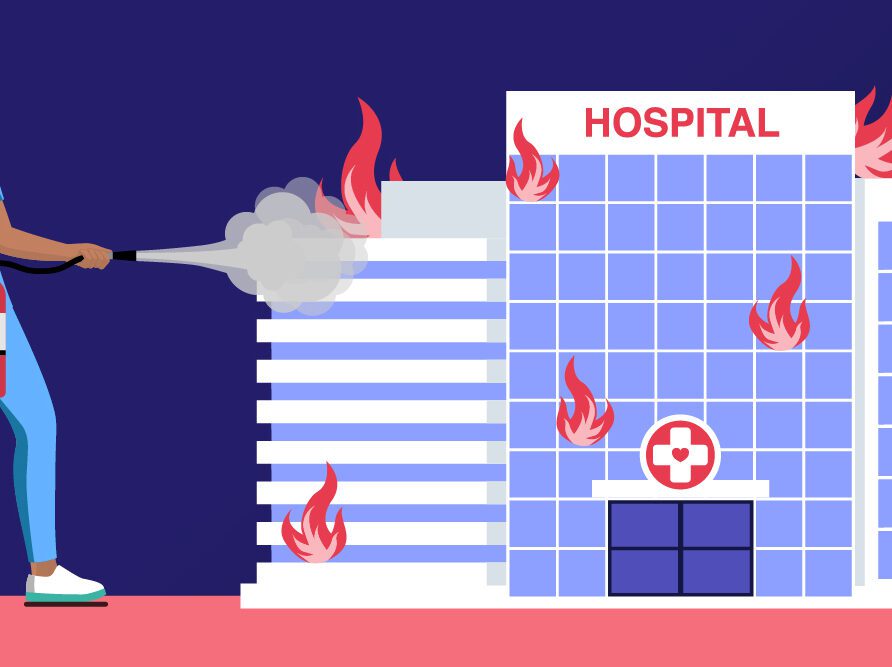Article
The future of EHRs in Wales: A turning point for digital health
As NHS Wales embarks on the next phase of its digital transformation, the spotlight is firmly on the role of Electronic Health Records (EHRs) and how they will underpin the delivery of connected, efficient and safe care across the country. The recently published Organisational Strategy 2024–2030 by Digital Health and Care Wales (DHCW) [1] sets a clear direction: to deliver a more joined-up health and care system, powered by timely, high-quality data that’s easily accessible wherever care is delivered.
At the heart of this vision is the ambition to create a truly integrated care record for every citizen in Wales. This will ensure that clinicians, carers and health professionals—whether working in hospitals, GP practices, community settings or care homes—can all access and contribute to the same patient information. That goal is not just about digitisation for its own sake. It is about improving clinical outcomes, enabling smarter decisions, reducing duplication and supporting the shift towards proactive, person-centred care.

Navigating a complex landscape
The strategy rightly recognises that achieving this vision will not be simple. Wales faces the same digital inequality challenges seen across many health systems, with different health boards working from varying starting points. While some areas have adopted advanced digital platforms and begun their transition to paperless environments, others are still heavily reliant on fragmented systems or even paper-based records.
This variation creates real barriers to interoperability and slows down the ability to deliver integrated care. It also places added burden on clinicians who are already under pressure. Without a unified and structured approach to data and records, valuable time is lost, clinical workflows are disrupted, and patients may not always receive the joined-up care they need.
Yet it is precisely this complexity that also creates the opportunity—and the urgency—for a national, strategic approach to EHRs. It is encouraging to see DHCW recognising that a one-size-fits-all model will not be appropriate, and that the national infrastructure must support both consistency and flexibility. Health boards must be able to adopt solutions that work for their local context while contributing to an all-Wales vision.
Why EHRs matter now more than ever
A modern, interoperable EHR system is no longer a “nice to have,” it is a clinical and operational necessity. At a time when every health system is under pressure to do more with less, having the right digital infrastructure is critical. It enables clinicians to view a person’s health information in one place, regardless of where care is delivered. It supports continuity of care, reduces duplication, avoids missed diagnoses and ensures everyone involved in a person’s care has access to the right data at the right time.
For patients, it builds confidence that their care is joined-up and well-coordinated. For staff, it removes friction, reduces cognitive burden, and frees up more time for direct care. And for the system as a whole, it provides the data foundations for population health, planning and continuous improvement.
A modern, interoperable EHR system is no longer a “nice to have,” it is a clinical and operational necessity. At a time when every health system is under pressure to do more with less, having the right digital infrastructure is critical
Looking ahead: Welsh Confed 2025 and the EHR Wales Summit 2025
With this context in mind, the Welsh Confed 2025 and the EHR Wales Summit 2025 next month take on particular importance. These events come at a pivotal moment in the digital journey for Wales. They offer a valuable opportunity for digital leaders, clinicians, programme managers and suppliers to come together and share practical insights, discuss challenges, and shape the path forward.
At Altera Digital Health, we’re proud to support NHS Wales through this critical phase. Our experience across the UK and internationally shows that meaningful progress is possible when technology and people are aligned around shared goals. We believe passionately that every health board, regardless of its current digital maturity, should have access to tools and support that enable it to move forward confidently.
Our commitment to NHS Wales
We understand the scale and complexity of this transformation. That’s why we offer:
- Modular, interoperable solutions: Our systems are designed to work across organisational boundaries and support phased adoption. Whether a health board is starting from scratch or building on an existing platform, our tools can flex to meet local needs while enabling national integration.
- Proven impact: Across the UK, our technology is helping NHS organisations reduce clinician burden, improve efficiency, and enhance safety. We have supported trusts in rapidly advancing their digital maturity without disruption to care.
- Partnership approach: We see ourselves not just as a supplier, but as a partner in progress. We work closely with clinical and operational leaders to ensure our solutions support real-world workflows and align with strategic priorities.
We look forward to contributing to the conversation in Cardiff. You can meet us at:
If you would like to book a meeting ahead of either event, please click the links above.
You can also view our client success stories to see examples of the impact we’re already delivering.
Together, we can build a digitally connected health and care system that works for all of Wales.
[1] https://dhcw.nhs.wales/about-us/key-documents/strategies/organisational-strategy-2024-2030/













